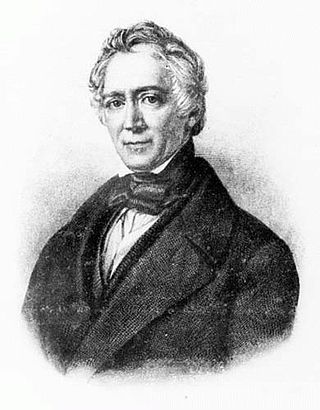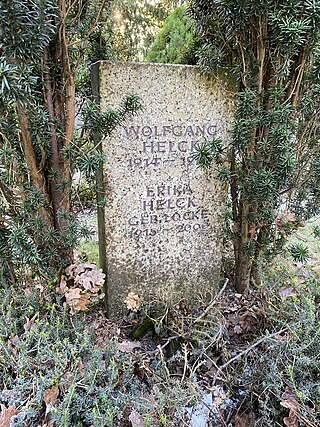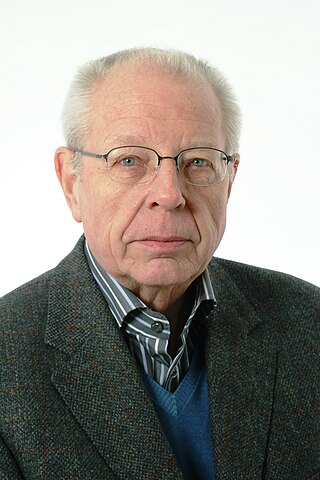This article has multiple issues. Please help improve it or discuss these issues on the talk page . (Learn how and when to remove these messages)
|

Norbert Finzsch (born 1951 in Cologne, Germany) as Norbert Rollewitz is a German historian.
This article has multiple issues. Please help improve it or discuss these issues on the talk page . (Learn how and when to remove these messages)
|

Norbert Finzsch (born 1951 in Cologne, Germany) as Norbert Rollewitz is a German historian.
Norbert Finzsch studied German literature and United States history at the University of Cologne, where he passed the state exam in both majors in 1977. In 1980 he received his PhD in history at Cologne. The title of the dissertation was The Gold miners of California: Conditions of Work, Standards of Living, and Political System in the Middle of the Nineteenth Century. It was a cliometric study. From 1981 to 1988 Finzsch taught American History as an assistant professor at the University of Cologne. In 1983/1984 he was a fellow of the American Council of Learned Societies at the University of California at Berkeley. In 1988 Finzsch passed his Habilitation (qualification for a professorship) and award of the Venia Legendi (right to teach) with a study of the social history of the Rhineland during the late 18th and early 19th century. In 1990 Finzsch was appointed deputy director of the German Historical Institute in Washington, D.C. In 1992 he received the chair of Modern History at the University of Hamburg as the successor of Günter Moltmann. He went to the University of Cologne in 2001 as Professor for North-American History. His research interests encompass the social history of the United States in the 19th and 20th centuries, the history of gender and sexuality and, since 2001, Australian history. From 2005 to 2007 Finzsch served as vice president of the University of Cologne. Between 1996 and 2000 Finzsch received several fellowships at the University of California in Berkeley, both at the Center for German and European Studies and the Center for International Government Studies. 2000/2001 he served as a visiting professor at the Université Michel Montaigne at Bordeaux, 2003 as visiting scholar at the Humanities Research Centre at the Australian National University in Canberra, Australia. 2012/13 Finzsch was appointed distinguished visiting scholar at Berkeley. 2014/2015 he was received a fellowship at the International Research Center re:work at the Humboldt University in Berlin. In 2016 Finzsch retired. In 2017, he received the Meyer-Struckmann-Prize of the Heinrich-Heine-University in Düsseldorf, Germany. Currently he is teaching at the Sigmund Freud University in Berlin as a visiting professor.
Finzsch began his career as a quantifying social historian of the US and Germany. Influenced by the linguistic turn and post-structuralist theory, he became a cultural historian, focusing on African American history, the history of penitentiaries and the history of sexualities. At the end of the 1990s, Finzsch broadened his interests by researching the history of genocides and female genital mutilation in Western Europe between 1600 and 1950.
Monographs
Edited Books

Friedrich Ludwig Georg von Raumer was a German historian. He was the first scientific historian to popularise history in German. He travelled extensively and served in German legislative bodies.
Hermann Ulrich Kantorowicz was a German jurist.
Heinz Heimsoeth was a German historian of philosophy.

Wilhelm Bölsche was a German author, editor and publicist. He was among the early promoters of nature conservation and committed to popularizing science.

Hans Wolfgang Helck was a German Egyptologist, considered one of the most important Egyptologists of the 20th century. From 1956 until his retirement in 1979 he was a professor at the University of Hamburg. He remained active after his retirement and together with Wolfhart Westendorf published the German Lexikon der Ägyptologie, completed in 1992. He published many books and articles on the history of Egyptian and Near Eastern culture. He was a member of the German Archaeological Institute and a corresponding member of the Göttingen Academy of Sciences.
Heinz Schilling is a German historian.
Horst Wolfgang Böhme is a German archaeologist with a focus on Late Antiquity / Early Middle Ages and research into castles.

The Soest Feud, or Feud of Soest, was a feud that took place from 1444 to 1449 in which the town of Soest claimed its freedom from Archbishop Dietrich of Cologne (1414–1463), who tried to restore his rule. The town of Soest opposed this attempt on 5 June 1444 by accepting a new suzerain, John I, the Duke of Cleves-Mark, who guaranteed the town its old rights as well as new ones. As a result Emperor Frederick III imposed the imperial ban on the town. The victory of the town meant that Soest had de facto more freedom than a free imperial city until it was annexed by Prussia, but at the same time it had to forfeit its economic power because it was now an enclave within Cologne's territory.
Friedrich Wilhelm Karl Ritter von Hegel was a German historian and son of the philosopher Georg Wilhelm Friedrich Hegel. During his lifetime he was a well-known and well-reputed historian who received many awards and honours. He was one of the major urban historians during the second half of the 19th century.
Mario Keßler is a German historian.

Peter Wicke is a German musicologist, who is particularly interested in popular music; he teaches as a university professor at Humboldt-Universität zu Berlin.
Erich Angermann was a German historian for North American history at the University of Cologne.
Johannes Kunisch was a German historian. He held chairs of early modern history at the Goethe University Frankfurt. (1972-1976) and the University of Cologne (1976–2002). Through his publications Kunisch became one of the leading German early modern historians. His biography Frederick the Great, published in 2004 and widely acclaimed, gave lasting impulses to Prussian research.
Kurt Kluxen was a German historian. From 1963 to 1979 Kluxen taught as a full professor for middle and modern history at the University of Erlangen-Nuremberg. He became known to a wider audience mainly through his History of England.
Peter Herde is a German historian. His research activities range from fundamental work on papal diplomatics of the Middle Ages to the history of the country up to the Second World War.
Theodor Friedrich Wilhelm Willi Kahl was a German musicologist.

Franz Anton Ritter von Gerstner was a civil engineer, professor and railway pioneer born in the Kingdom of Bohemia in what was then the Habsburg monarchy.
Peter Uwe Hohendahl is an American literary and intellectual historian and theorist. He served as the Jacob Gould Schurman Professor of German Studies at Cornell University, where he is now a professor emeritus.

Leonhard Harding is a German historian and scholar in African studies.

The "Potato revolution" is the name given to the food riot that took place in the Prussian capital Berlin between April 21 and April 22/23, 1847.